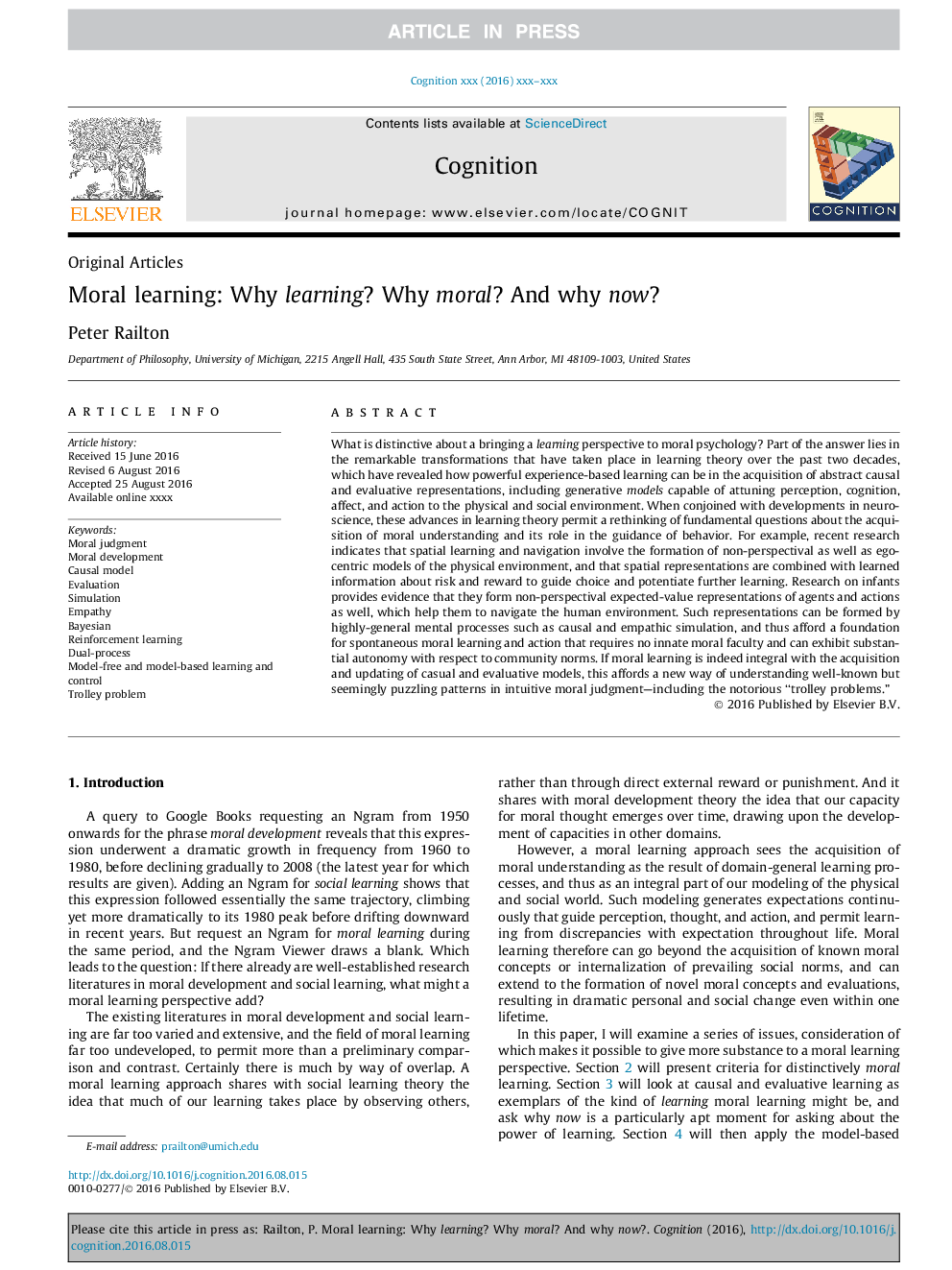ترجمه فارسی عنوان مقاله
یادگیری اخلاقی: پایه های مفهومی و ارتباطات هنجاری
عنوان انگلیسی
Moral Learning: Conceptual foundations and normative relevance
| کد مقاله | سال انتشار | تعداد صفحات مقاله انگلیسی |
|---|---|---|
| 130098 | 2017 | 19 صفحه PDF |
منبع

Publisher : Elsevier - Science Direct (الزویر - ساینس دایرکت)
Journal : Cognition, Volume 167, October 2017, Pages 172-190
ترجمه کلمات کلیدی
قضاوت اخلاقی، پیشرفت اخلاقی، مدل علمی، ارزیابی، شبیه سازی، یکدلی، بیزی، تقویت یادگیری، فرآیند دوگانه، یادگیری و کنترل مبتنی بر مدل و مدل، مشکل ترانسپورتی،
کلمات کلیدی انگلیسی
Moral judgment; Moral development; Causal model; Evaluation; Simulation; Empathy; Bayesian; Reinforcement learning; Dual-process; Model-free and model-based learning and control; Trolley problem;

